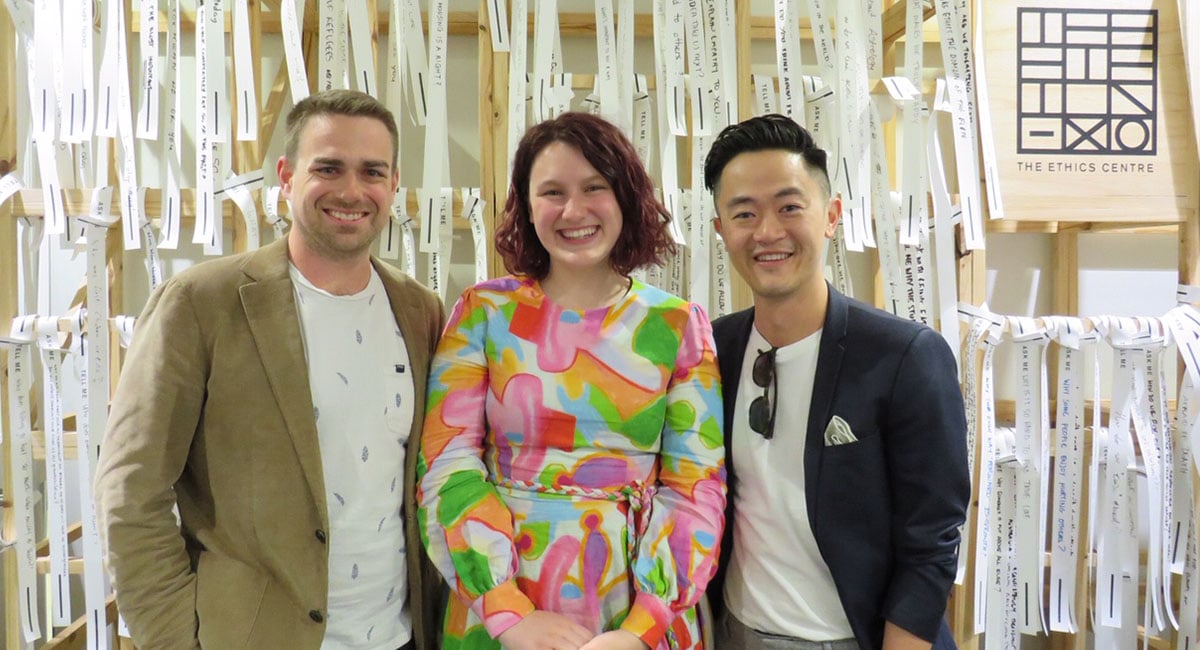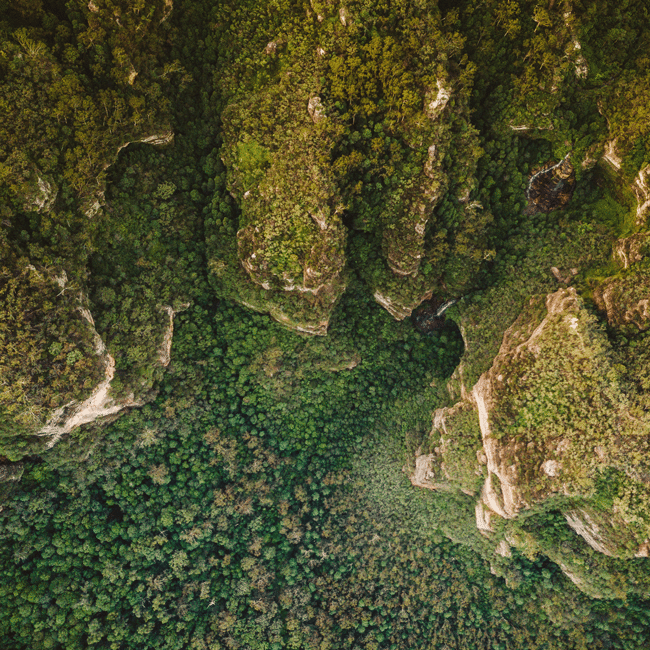
Courage isn’t about facing our fears, it’s about facing ourselves
Opinion + AnalysisRelationships
BY Matthew Beard 22 AUG 2019
What was your first lesson in courage? The first time someone told you to be brave – or explained to you that fear was something to be overcome, not something that should control you?
I can’t remember the very first moment I encountered the idea of courage, but the first I can remember – and the one that has stayed with me the longest – is this: “being brave doesn’t mean we looking for trouble.”
It is, of course, from Disney’s The Lion King. Mufasa, moments after saving his son, Simba, from ravenous hyenas, chastises his boy for putting himself and his friend in danger.
Simba’s journey in The Lion King is really a treatise on courage. From a reckless, thrill-seeking child, Simba loses his father and, believing himself responsible, flees from the social judgement that might bring.
Simba takes his father’s lesson too far: he doesn’t look for trouble, but when it finds him, he runs from it. He lives as an exile in a hedonistic paradise. Comfortable, apathetic, safe. For all his physical prowess, Simba is a coward.
Of course, by the end of the film Simba has found courage. He accepts his identity as the true king, admits his shame publicly, defeats Scar (his true enemy) and takes his place in the circle of life, complete with staggering musical accompaniment.
As well as having a soundtrack that’s jam-packed with bangers, it turns out the Lion King has a strong philosophical pedigree.
Courage as a virtue
The Greek philosopher Aristotle believed that courage was as virtue – a marker of moral excellence. More specifically, it was the virtue that moderated our instincts toward recklessness on one hand and cowardice on the other.
He believed the courageous person feared only things that are worthy of fear. Courage means knowing what to fear and responding appropriately to that fear.
For Aristotle, what mattered isn’t just whether you face your fears, but why you face them and what it is that you fear.
There is something important here. Your reasons for overcoming fear matter. They can be the difference between courage, cowardice and recklessness.
For instance, in Homer’s Iliad, the Trojan prince Hector threatens to punish any soldier he sees fleeing from the fight. In World War I, soldiers who deserted were executed.
Were these soldiers courageous? The only reason they risk death from the enemy is because they’re guaranteed to be killed if they don’t. The fear of death is still what drives them.
More courageous, says Aristotle, is the soldier who freely chooses to fight despite having no personal reason to do so besides honour and nobility. In fact, for Aristotle, this is the highest form of courage – it faces the greatest fear (death) for the most selfless reason (the nation).
Of course, Aristotle was an Ancient Greek bloke, so we should take his prioritising of military virtue with a grain of salt. Is death at war really to be so highly prized?
For one thing, in a culture like Ancient Greece or Troy, the failure to be an excellent warrior would be met with enormous dishonour. How many soldiers went to war for fear of dishonour? Is dishonour something to be rightly feared? And if so, whose dishonour should we fear?
Surely not that of a society whose moral compass prioritises victory over justice – risking your life to support a cause like that is reckless.
If courage means fearing dishonour from those who are morally corrupt, then a courageous enemy is worse than a cowardly one. Courage becomes like a superpower – making some people into heroes and others villains.
But there’s a deeper reason to doubt Aristotle’s idea of the highest courage. Whilst most of us do fear death, it’s not clear that it’s the thing we fear most. Even if we do fear death, we have a range of different reasons for doing so.
Our deepest fears
Perhaps my most visceral fear is of drowning. The thought of it is enough to make me feel short of breath. Perhaps that’s because of an experience when I was younger – when I was overseas I learned that my Dad nearly drowned. It was perhaps the first time I really had to come to grips with the fact he was mortal – and so was I – and all that I loved.
Today, I fear death because it would mean never seeing my children grow up. Never holding them one last time. Seeing my son’s first days at school. Hearing my daughter’s first words.
Worse, I wouldn’t be sure that they were safe and flourishing. If someone could guarantee that, perhaps I’d be less fearful of death. It’s not the death I fear; it’s what it represents: an incomplete life, failed commitments, unending love brought to a close.
Aristotle didn’t consider courage in the face of existential anxieties like these. What does it mean to live courageously in a world where all our loves, passions and projects expose us to pain and loss? To live is to have a nerve constantly exposed to the world – always vulnerable to suffering.
The French psychoanalyst and philosopher Anne Dufourmantelle argues that risk is an inherent part of living fully in the world. Risk-free living, she argues, is not living at all. Courage is as much about living despite knowing the exposed nerve of love and passion could trigger chest-tightening pain at any moment.
Yet so often we close ourselves from the world to keep ourselves safe. We self-censor not because we think we might be wrong, but because we fear upsetting the wrong person. We withdraw from relationships because we don’t want to be the one to take the leap. We tell ourselves stories in the shower of all the things we could do – could be – if only the world let us.
Existentialist philosophers have a name for this kind of self-deception: bad faith – a kind of failure to engage with the world as it really is and accepting ourselves as we are and as we could be.
Too often we think of courage purely as facing up to our fears. What that misses is how deeply connected our fears are with deeper beliefs about who we are, who we want to be, who we love and what we wish the world was.
A courageous truth
Maybe the truth of courage is that it’s all about truth. It’s about looking reality in the face and having the force of will not to turn away, despite the pain, the unpleasantness and the risk.
Maybe it’s about looking for long enough to see the joy in the pain; the beauty in the ugliness and the comfort that lies in the little risks we take every day.
Perhaps it’s only then we can know what’s worth dying for – and what’s worth living for. Certainly, Dufourmantelle gives us some hope of this. In 2017, she died in rough seas off the coast of France, having swum out to rescue two children caught in the surf.
The children survived, but how many of us would have dived in? How many would have hoped for a lifeguard? A stronger swimmer? For the children to rescue themselves?
I want to encourage you to think: are there rough waters you’re not jumping into for fear of the waves? Do you tend to dive in without counting the costs?
Dr Matt Beard was the host of The Ethics of Courage, alongside Saxon Mullins and Benjamin Law at The Ethics Centre on 21 August. This is a transcript of his opening address.

Ethics in your inbox.
Get the latest inspiration, intelligence, events & more.
By signing up you agree to our privacy policy
You might be interested in…
Explainer
Relationships
Ethics Explainer: Begging the question
Opinion + Analysis
Relationships
Is it ethical to splash lots of cash on gifts?
Opinion + Analysis
Business + Leadership, Climate + Environment, Relationships
ESG is not just about ticking boxes, it’s about earning the public’s trust
Big thinker
Relationships, Society + Culture




